Savor tagines and couscous infused with spices from ancient trade routes—flavors we can weave into private cooking classes or desert camp dinners on your itinerary. Admire intricate zellige tiles, bold Berber rugs, and riad artistry, with hands-on workshops available to personalize your journey.
Immerse in music festivals, traditional tea ceremonies, or hammam rituals, all customizable for families, groups, or luxury seekers. Let Gateway2Morocco craft the ultimate Morocco tour, blending these highlights into unforgettable, tailored experiences.
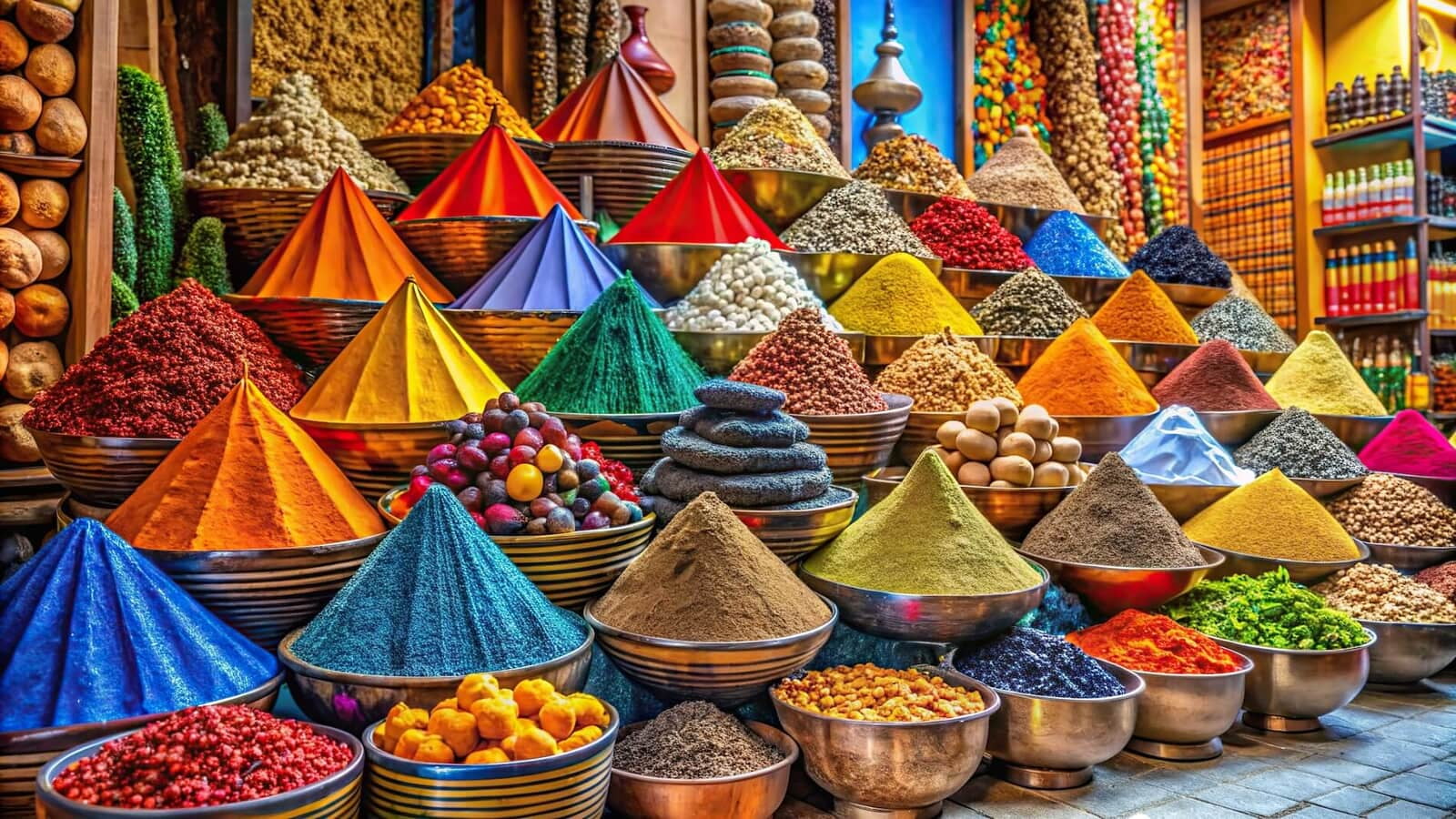
The Heart of Traditional Moroccan Culture
The Berbers, indigenous to the region, have a profound impact, particularly in rural areas. Their customs and crafts are part of everyday life.
Moroccan culture celebrates community and hospitality. Visitors are welcomed with warmth, symbolized by sharing mint tea, known as "Moroccan whiskey."
Traditional Moroccan art is deeply linked to Islamic art. It features intricate geometric patterns and stunning arabesques. These designs appear in architecture, textiles, and more.
- Family-oriented lifestyle
- Welcoming hospitality
- Emphasis on music and dance
- Vibrant festivals
The city's pulse can be felt in the medinas, especially in historic Fez. The maze-like streets offer glimpses into Morocco's past.
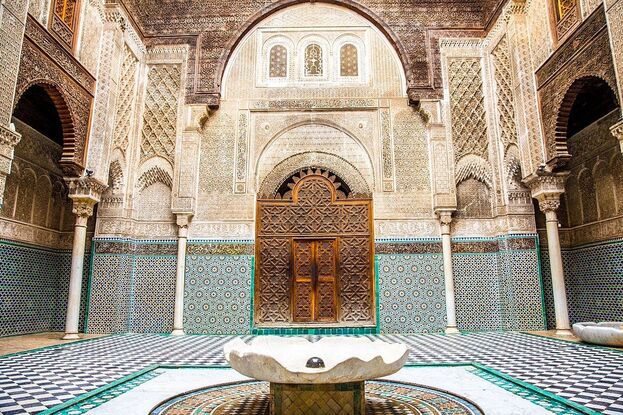
Moroccan Cuisine: Flavors, Rituals, and Regional Specialties
Moroccan cuisine is a symphony of flavors. It skillfully blends spices such as cumin, saffron, and cinnamon. Each dish tells a story of cultural fusion and history.
Meal times in Morocco are about more than eating. They are social events that foster community and connection. Eating together is an expression of care and unity.
Regional specialties highlight Morocco's diverse landscape. From coastal seafood to hearty mountain dishes, flavors vary widely. Each region boasts unique culinary delights.
In Marrakesh, you might savor spicy harira soup. Further north, the blue city of Chefchaouen offers fresh goat cheese and olives.
Foods you should try during your visit include:
- Tagine: a slow-cooked stew
- Couscous: fluffy, grainy pasta with vegetables
- Bastilla: a sweet, savory pastry filled with meat
- Harira: a comforting lentil soup
These dishes often use ingredients like olives, lemons, and almonds. These staples enrich the flavors and textures of Moroccan meals.
The art of cooking in Morocco is passed through generations. Traditional methods and techniques are cherished, keeping history alive.
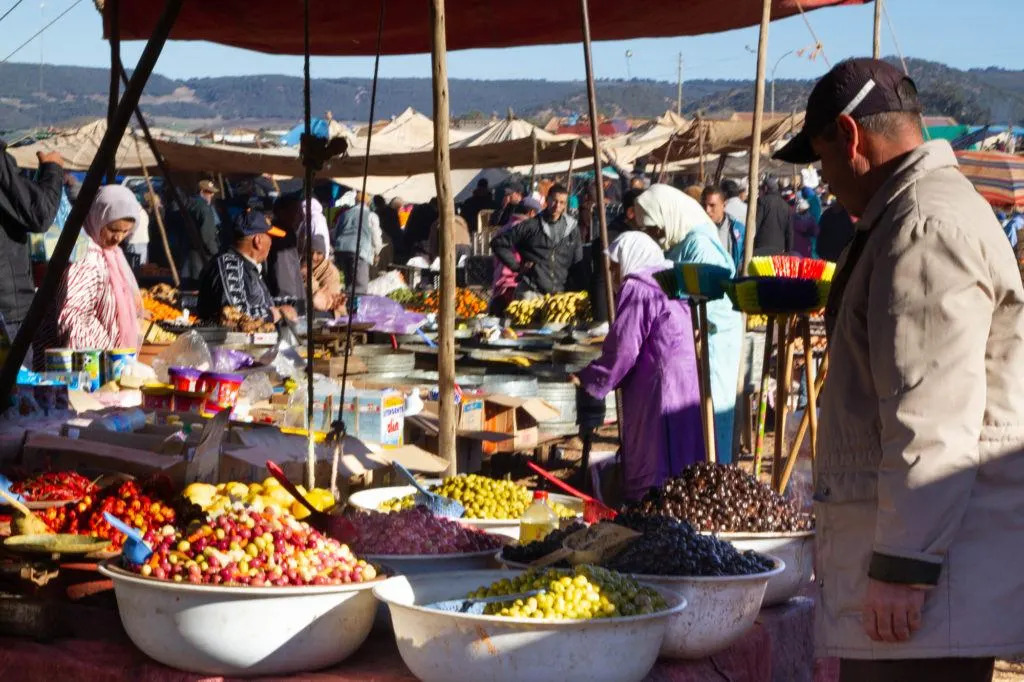
For the visitor, Moroccan cuisine offers an unforgettable experience. It's more than food; it's a sensory journey through taste and time.
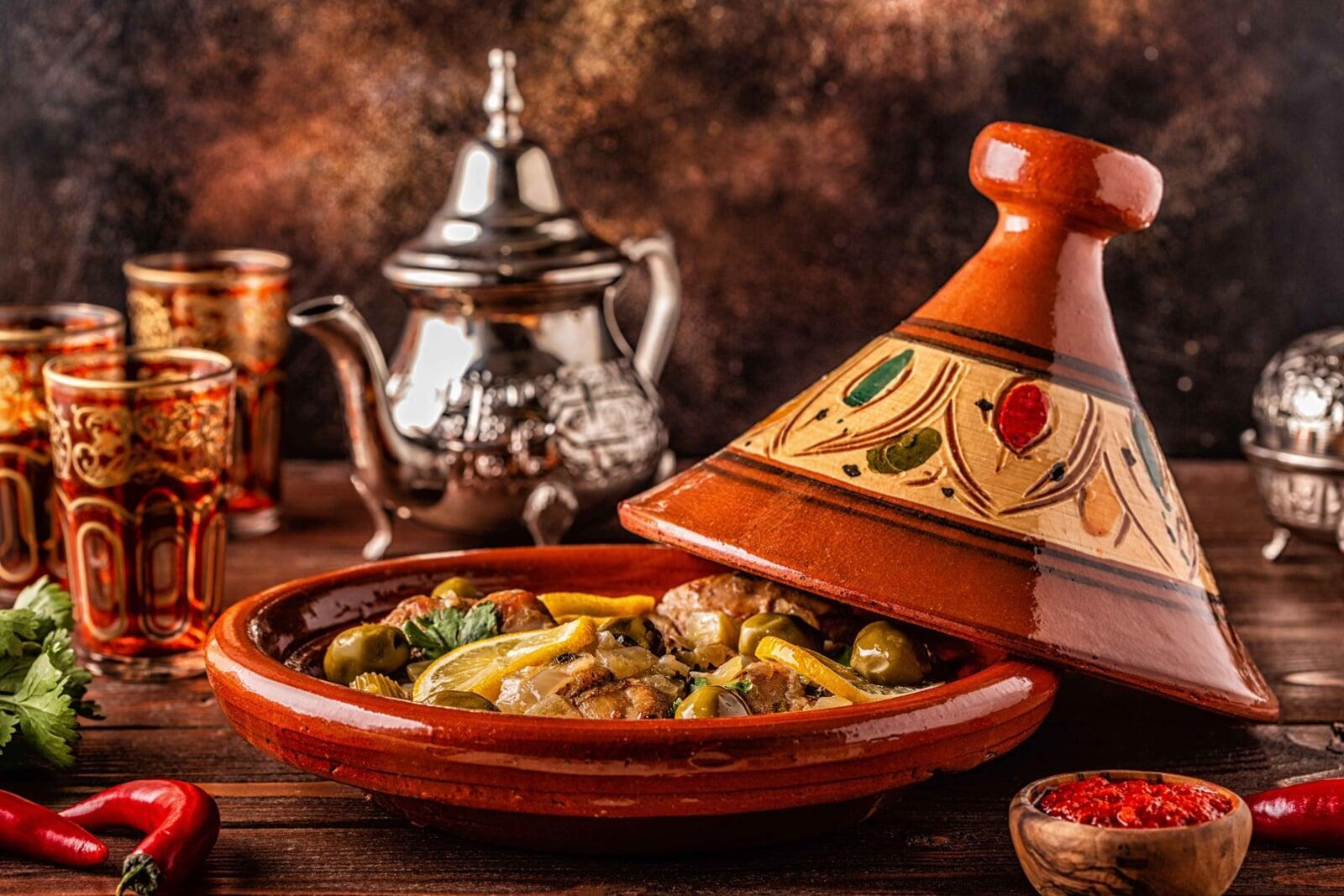
Signature Dishes and Ingredients
Moroccan cuisine features several signature dishes. Tagine, a slow-cooked stew, is iconic. It's prepared in a unique earthenware pot that enhances flavors.
Couscous, another favorite, is versatile. It's served with a mix of vegetables and tender meat. This dish is central to family meals and celebrations.
Bastilla combines sweet and savory in flaky perfection. Layers of pastry hide spiced chicken or pigeon, blending cinnamon and sugar atop.
Must-try ingredients include:
- Saffron: adds a golden hue and fragrance
- Preserved lemons: key in many dishes
- Harissa: a fiery chili paste
- Ras el hanout: a complex spice mix
Each ingredient enhances the dish's depth, offering a memorable taste.
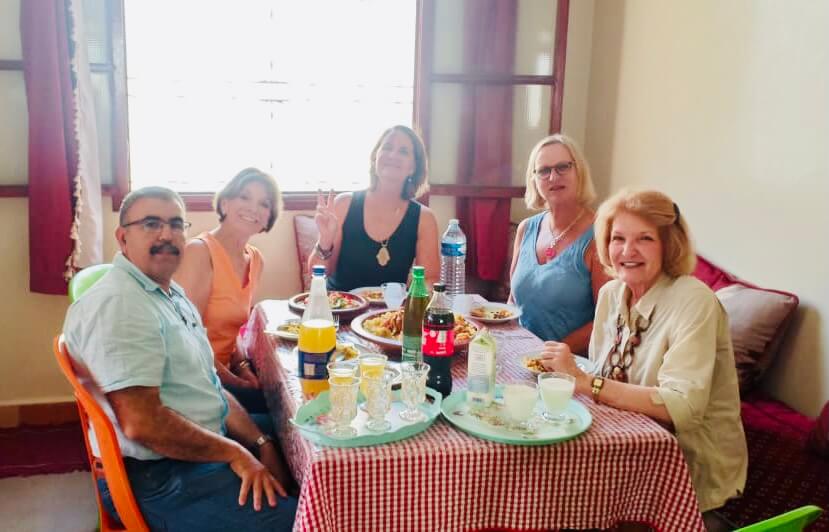
hese dishes and ingredients define Moroccan cuisine. They reflect its history, diversity, and regional flavors, making every meal special.
The Moroccan Tea Ceremony
The Moroccan tea ceremony is more than drinking tea. It's a warm expression of hospitality and friendship. Mint tea, or "Moroccan whiskey," is at its core.
Guests are often invited to share a cup. The host carefully pours tea from high above, creating frothy bubbles as a sign of honor.
In Morocco, tea is sweet and refreshing. It combines green tea leaves with fresh mint and sugar.
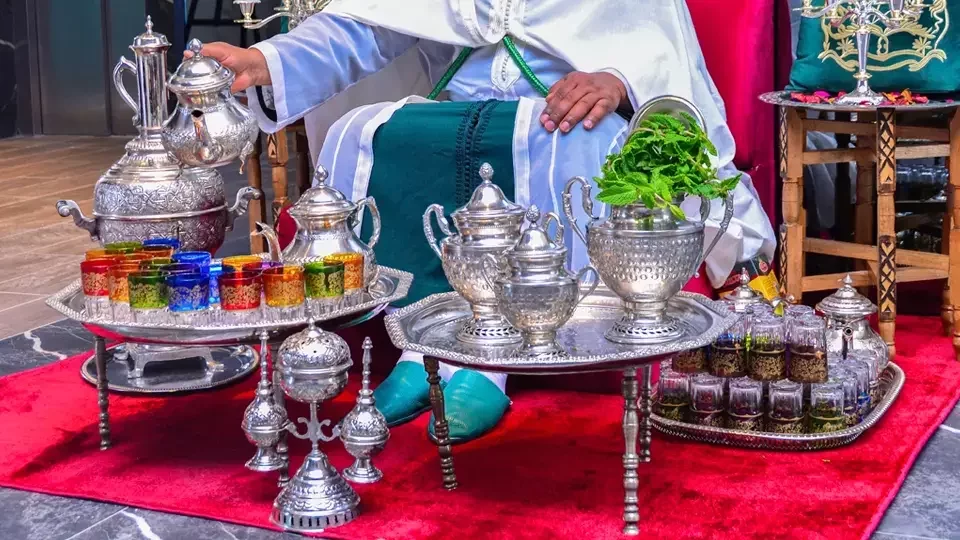
The Art of Morocco: From Ancient Traditions to Modern Masterpieces
Moroccan art is a tapestry of vibrant colors and intricate designs. It draws inspiration from its rich history and diverse cultural roots.
Much of traditional Moroccan art is influenced by Islamic art. This influence is evident in the detailed geometric patterns and beautiful calligraphy seen across various art forms.
Pottery, textiles, and metalwork are integral to Moroccan artistic expression. Each piece tells a story of craftsmanship passed down through generations.
Moroccan paintings often capture everyday scenes and abstract landscapes. The artwork reflects the colorful spirit and energy of the country.
In urban centers like Marrakech, contemporary art flourishes. Artists blend traditional motifs with modern techniques, creating dynamic pieces that resonate globally.
While exploring Moroccan art, don't miss:
- Intricate zellige tilework
- Luxurious handwoven carpets
- Exquisite Berber jewelry
- Painted ceramics
These art forms celebrate Morocco's rich cultural heritage, showcasing its unique identity.
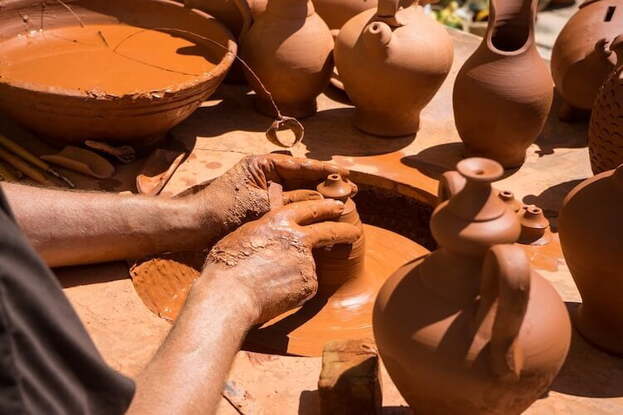
Art in Morocco offers a window into the soul of the nation. It connects the past with the present, constantly evolving yet rooted in tradition.
Traditional Moroccan Art Forms
Traditional Moroccan art is deeply rooted in history. It includes various art forms, each with unique characteristics.
Pottery is a cornerstone of Moroccan craftsmanship. Artisans mold and paint intricate designs on vases and tiles, infusing each piece with vibrant hues.
Textiles also hold a special place. Moroccan rugs are world-renowned for their quality and elaborate designs. They often feature geometric patterns and bright colors.
Metalwork showcases the skill of Moroccan artisans. From jewelry to lanterns, detailed engravings and motifs highlight their expertise.
Essential traditional Moroccan art pieces include:
- Painted pottery with bold designs
- Handcrafted Berber rugs
- Engraved silver jewelry
- Decorative wooden carvings
These art forms are more than decorative; they represent Morocco's rich cultural tapestry.
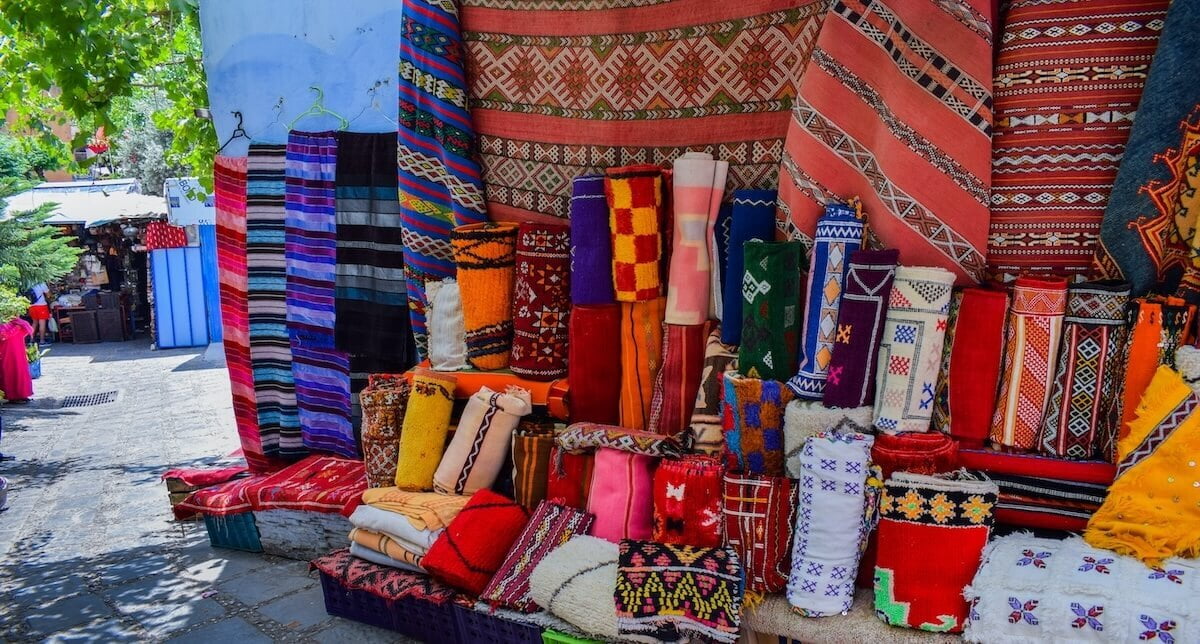
Moroccan art blends tradition with symbolism. Each piece reflects stories, beliefs, and the vibrant Moroccan spirit.
Contemporary Moroccan Art and Galleries
Contemporary Moroccan art is thriving. Artists are experimenting with new techniques while honoring traditional elements.
Marrakech is a hub for this creative wave. Galleries there display works that meld tradition with innovation, offering fresh perspectives.
In cities like Casablanca and Rabat, art galleries showcase emerging and established artists. They host exhibitions that captivate and inspire visitors.
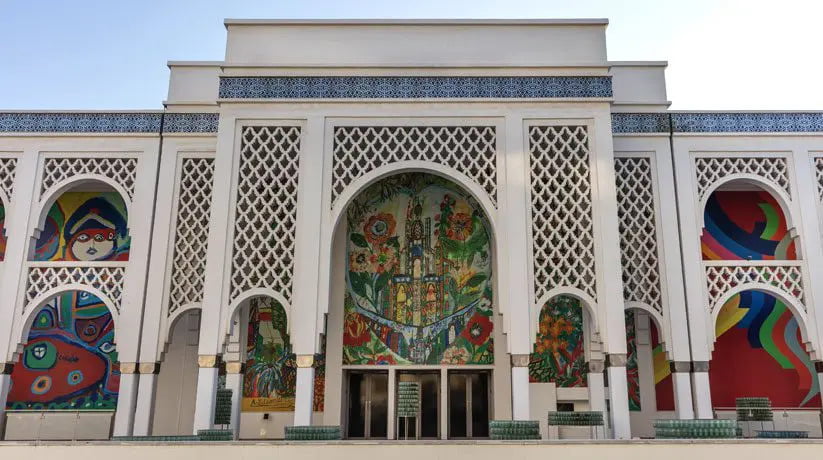
Moroccan Architecture: Living Art in Everyday Life
Moroccan architecture is an enchanting blend of styles. It combines Moorish, Berber, and French colonial influences, creating a unique aesthetic.
This architectural diversity is visible in the grand palaces and humble homes alike. The designs focus on comfort, beauty, and craftsmanship.
Strolling through Moroccan cities, you'll encounter intricate tilework, carved wood, and ornate metal details. Every element is meticulously crafted to create a sense of harmony.
One of the standout features is the iconic riads. These traditional homes feature inward-facing courtyards filled with lush plants and beautiful fountains.
Key architectural highlights include:
- Ornate zellige tile patterns
- Majestic arched doorways
- Intricately carved wooden ceilings
- Stunning geometric designs
Each structure in Morocco tells a tale of art and history. The buildings are more than functional; they embody the spirit and traditions of a vibrant culture.
Exploring Moroccan architecture is a journey through time, revealing layers of cultural richness embedded in every corner.
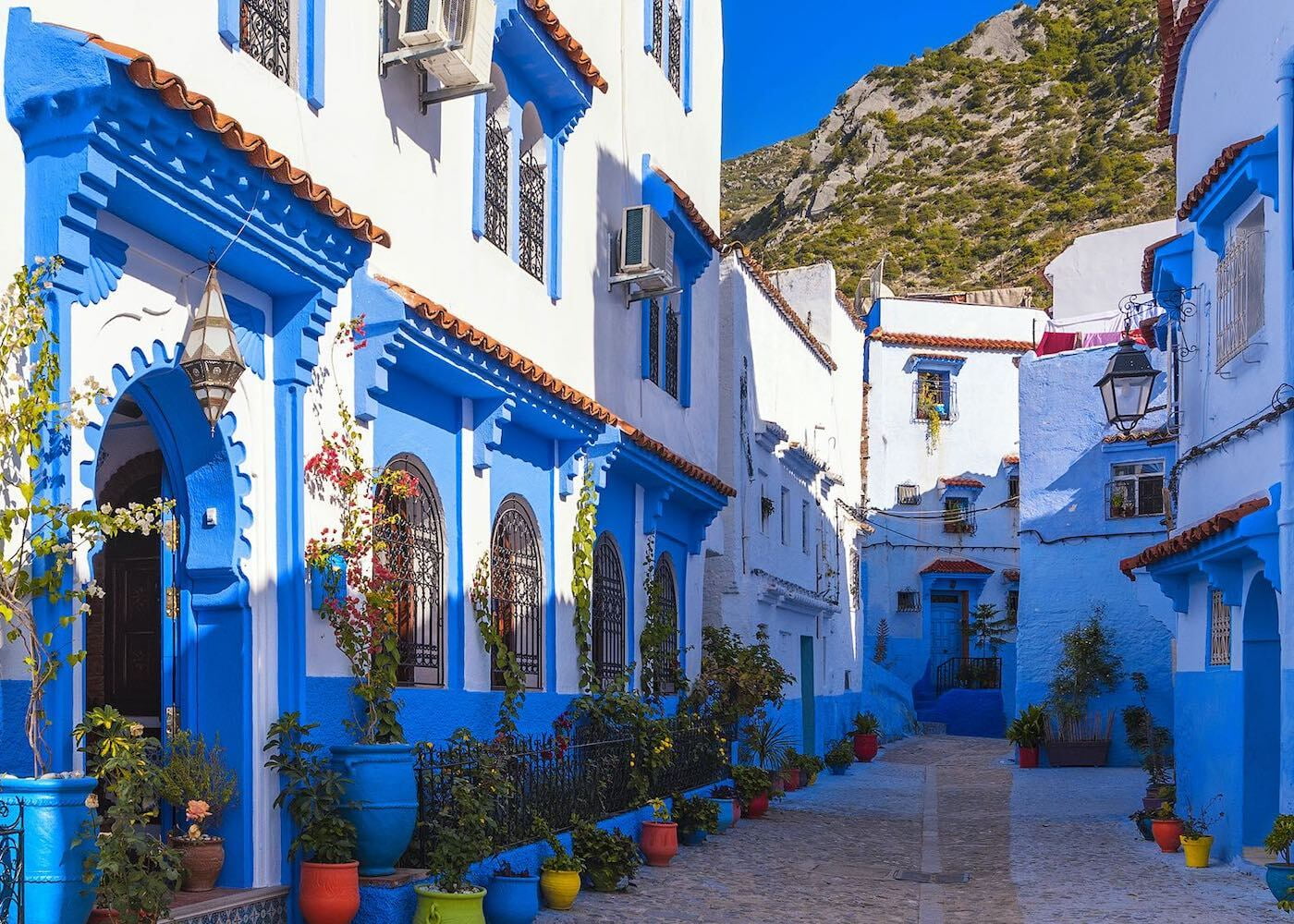
Experiencing Moroccan Culture: Festivals, Music, and Daily Life
Moroccan culture is vibrant and deeply rooted in traditions. Festivals play a crucial role in showcasing this cultural richness. Events like the Gnaoua World Music Festival in Essaouira attract visitors worldwide. This celebration fuses spiritual music with modern sounds, creating a unique auditory experience.
Music is a daily part of Moroccan life. In the bustling markets, known as souks, melodies echo through the alleys. Traditional instruments like the oud and darbuka set the rhythm for daily activities. Street performers bring an artistic flair to the urban landscape.
Moroccan festivals and daily life:
- Colorful souks filled with local crafts
- Traditional music festivals and performances
- Daily life influenced by historical traditions
The daily life in Morocco also involves social gatherings. Locals engage in storytelling, dance, and sharing meals. Hospitality is a cornerstone, and visitors often experience a warm welcome. Attending a Moroccan festival or simply walking through a medina can provide deep cultural insight.
Participating in these activities offers a glimpse into the soul of Morocco. It's where ancient traditions meet dynamic modern life, forming an unforgettable experience.
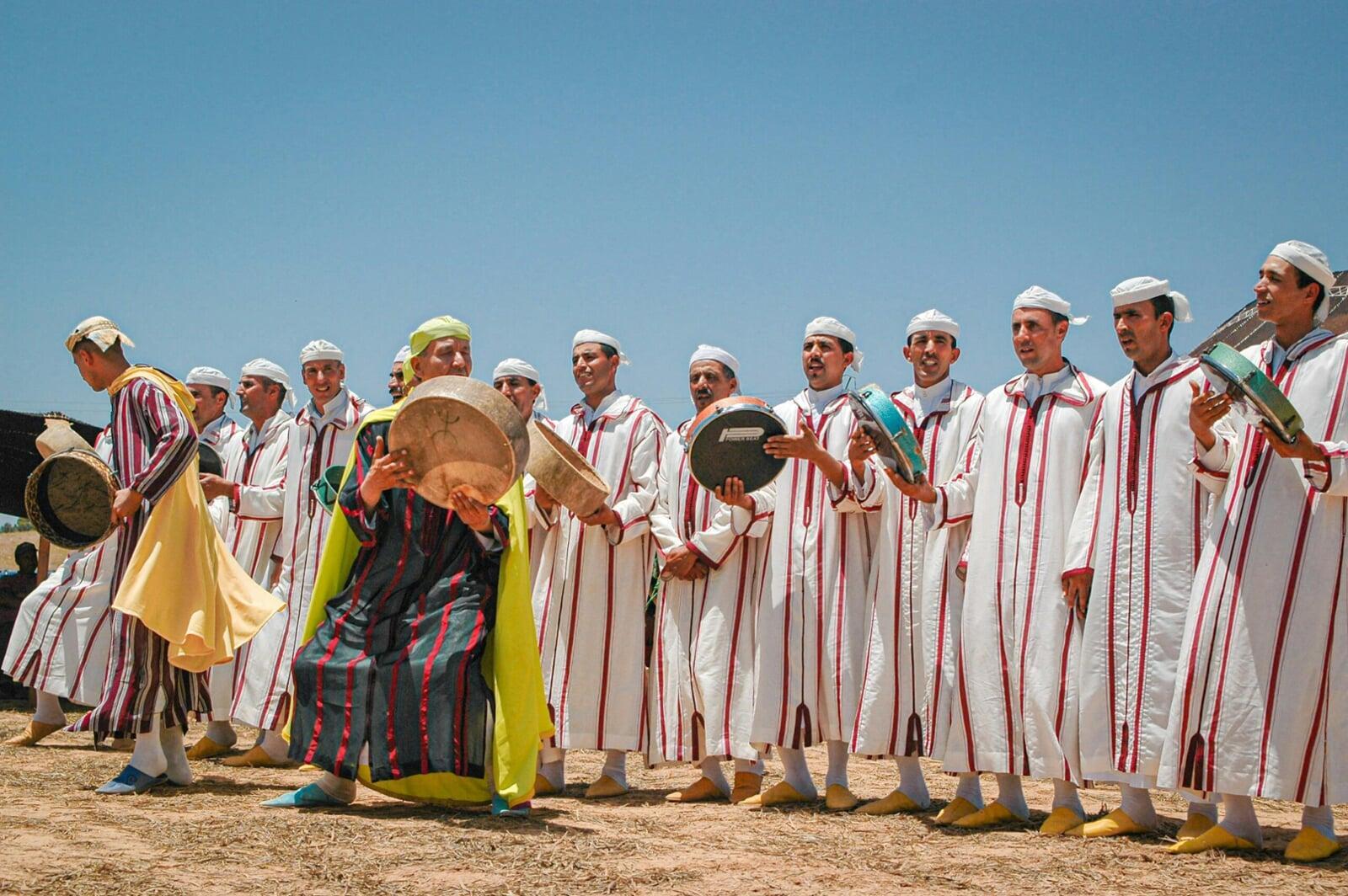
Where to Experience Moroccan Art and Cuisine: Top Destinations
Morocco boasts numerous destinations to savor its art and cuisine. Each place offers a distinct experience. Visitors find a mix of tradition and modernity.
Marrakech is a vibrant hub for Moroccan culture. The city's medina is a UNESCO World Heritage site. Here, bustling souks brim with colors, sounds, and flavors.
Top Moroccan cultural destinations:
- Marrakech: Art galleries and diverse cuisine
- Fez: Traditional crafts and historic architecture
- Chefchaouen: Unique blue streets and artistic vibe
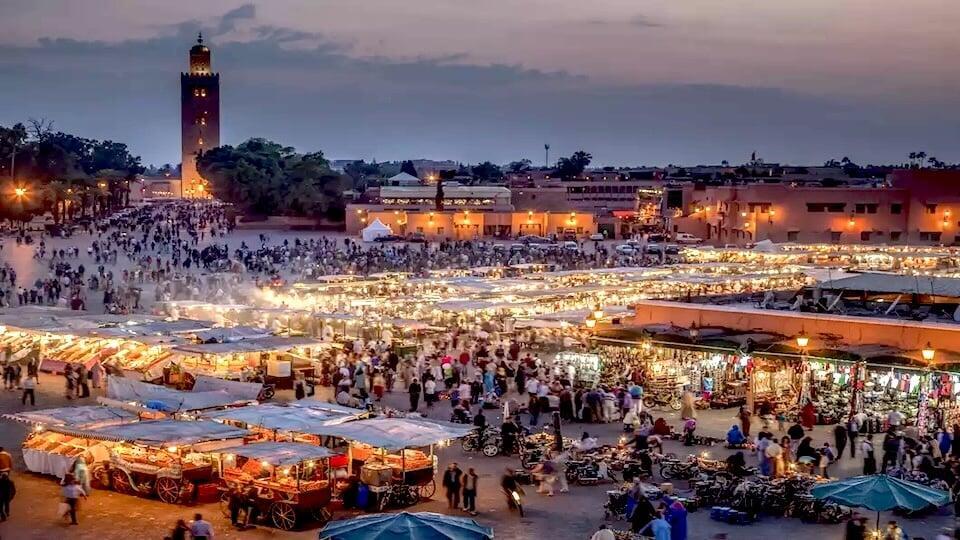
Fez offers a step back in time. Its ancient medina is a living museum. Artisans craft goods using age-old techniques. Visitors can watch them create pottery, textiles, and more.
Chefchaouen, with its iconic blue-washed walls, provides an artistic escape. It's known for its tranquil atmosphere and creative spirit. The city's charm and beauty make it a photographer's paradise.
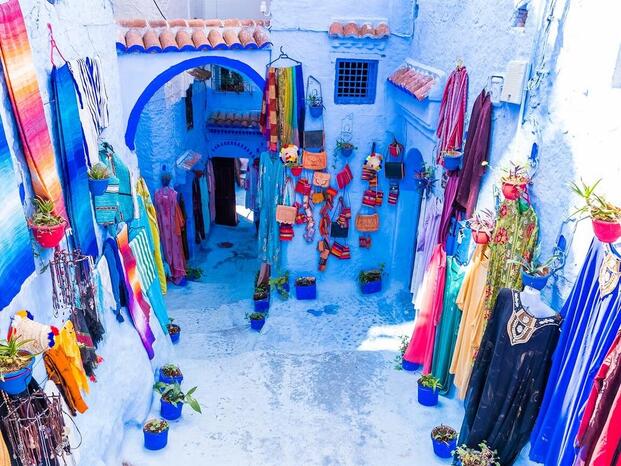
These destinations weave together the art and cuisine of Morocco. Each city holds its own story. Travelers can immerse themselves, discovering Morocco's rich heritage firsthand.
Practical Tips for Immersing Yourself in Moroccan Culture
Travelers should embrace local customs to enrich their Moroccan experiences. It's essential to engage with locals and explore beyond tourist areas. These practices provide authentic insights into daily life.
Learning basic phrases in Arabic or French can enhance interactions. Moroccans appreciate attempts to speak their languages. This effort often results in warm, welcoming responses.
Essential tips for a rich cultural experience:
- Dress modestly: Respect traditions with appropriate attire.
- Visit a local family: Share a meal and exchange stories.
- Participate in a festival: Experience music and dance firsthand.
- Savor street food: Discover flavors at bustling markets.
- Use public transportation: Observe everyday life and meet locals.
These tips can transform your journey. The key is openness and curiosity. Morocco's vibrant culture awaits those willing to explore.
Conclusion: Embracing the Spirit of Morocco
By exploring Moroccan art and cuisine, you experience more than just a country. You connect with its history and enduring spirit. Truly, Morocco is an explorer's dream.